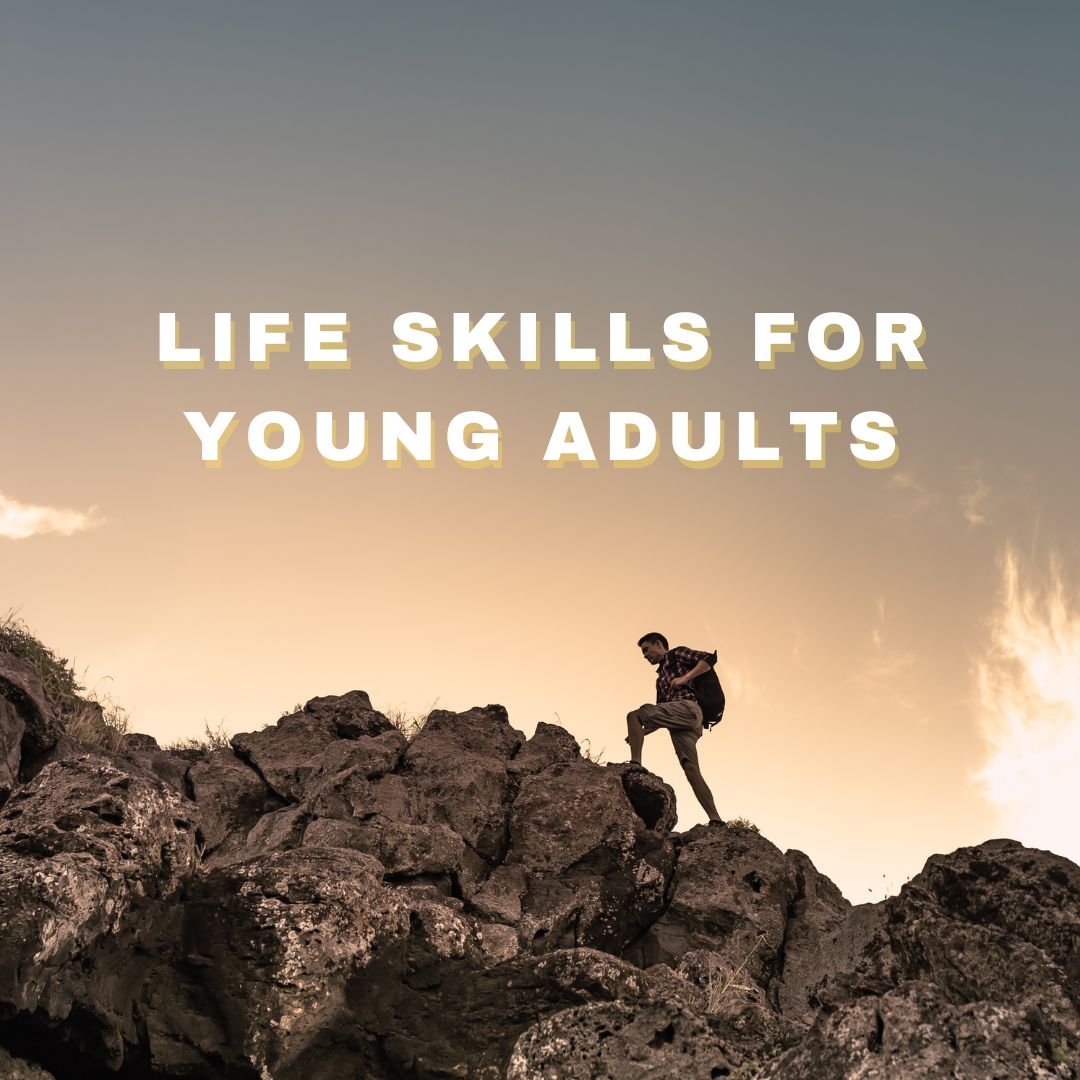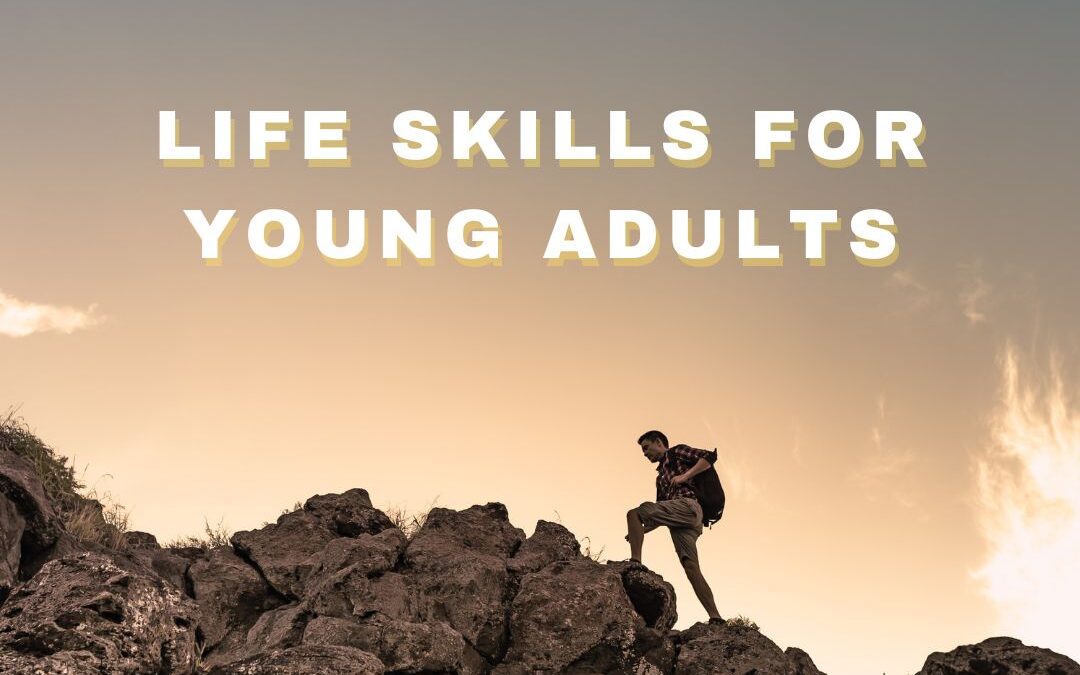Transitioning from adolescence to adulthood is a thrilling yet challenging phase. This journey is paved with opportunities and obstacles that demand a robust set of life skills from young adults. These skills are vital as they carve out their path, fostering independence and personal growth.
Many young adults grapple with practical challenges, such as managing finances, building meaningful relationships, and pursuing career goals. Understanding and developing these skills empower young adults to navigate the world confidently and make informed decisions. As they step into this new chapter of life, the importance of these life skills becomes increasingly evident.
Life becomes a learning journey marked by both successes and lessons. Embracing this journey with the right tools and mindset sets the foundation for a thriving adulthood.

Building Strong Financial Foundations
Understanding Money Management
A solid financial foundation begins with mastering money management. Here’s how young adults can start:
- Budgeting Basics: Track all expenses to understand spending habits.
- Saving Smart: Set aside a portion of income for emergencies.
- Spending Wisely: Differentiate between needs and wants to make informed purchases.

Credit and Debt Awareness
Good credit is essential for financial independence. To manage credit and debt effectively, consider these steps:
- Know Your Credit Score: Regularly check credit reports for accuracy.
- Build Credit Wisely: Use a credit card responsibly to establish a credit history.
- Manage Debt: Prioritize debts and create manageable repayment plans.
- Avoid Unnecessary Debt: Think carefully before taking on new debts.
By following these guidelines, young adults can establish a strong financial foundation and confidently work towards achieving their financial goals.
Navigating the Job Market
Developing a Clear Career Path
Choosing a career path that aligns with one’s skills and passions is crucial for long-term satisfaction. For young adults, this journey often starts with self-assessment:
- Identify Interests and Strengths: Reflect on what you enjoy and excel at.
- Research Career Options: Explore different fields to find a good match.
- Set Career Goals: Begin with short-term objectives that lead to long-term aspirations.
Additionally, networking and mentorship play essential roles. Connecting with professionals and seeking mentors can provide guidance and open opportunities that would be otherwise difficult to find.

Building a Professional Resume
Creating a standout resume is a vital step in landing the desired job. Here are some helpful tips:
- Tailor Your Resume: Customize it for each job application to highlight relevant experience.
- Highlight Achievements: Include specific accomplishments that demonstrate skills and expertise.
- Keep it Concise: Your resume should be clear and concise, typically no longer than one page.
Interviewing is an essential Life Skill for Young Adults. Practice common interview questions and seek feedback from mentors. This preparation ensures you leave a positive and memorable impression on potential employers.
Cultivating Healthy Relationships
Communication Skills
Effective communication is the cornerstone of healthy relationships. This Life Skill for Young Adults can lead to more meaningful connections. Here are some tips to enhance communication:
- Practice Active Listening: Pay attention and show genuine interest in others’ words.
- Express Clearly: Communicate thoughts and feelings straightforwardly and respectfully.
- Be Open to Feedback: Accept constructive criticism to improve interactions.

Setting Boundaries and Understanding Interdependence
Understanding boundaries and interdependence is crucial for balanced relationships. Setting healthy boundaries fosters mutual respect and reduces stress. Consider the following:
- Know Your Limits: Recognize what makes you comfortable and communicate it to others.
- Respect Others’ Boundaries: Understand and honor the boundaries set by those around you.
- Balance Independence and Togetherness: Maintain individuality while supporting and relying on others.
Strong relationships are built on respect, communication, and mutual support, helping young adults thrive in personal and professional settings.
Developing Personal Identity and Self-growth
Self-awareness and Personal Values
Developing self-awareness is key to understanding one’s identity. Exploring personal values and beliefs helps young adults make decisions aligned with their true selves:
- Reflect Regularly: Spend time in contemplation to evaluate personal goals and values.
- Engage in Journaling: Document thoughts and experiences to gain deeper insights.
- Seek Experiences: Participate in activities that challenge your perspectives and enhance growth.
Coping with Stress and Building Resilience
Managing stress effectively is crucial for personal well-being. Here are strategies to build resilience:
- Practice Mindfulness: Engage in activities like meditation or yoga to stay grounded.
- Develop Healthy Coping Mechanisms: Find outlets for stress, such as exercise or creative pursuits.
- Build a Support System: Surround yourself with supportive friends and mentors who encourage growth.
By fostering self-awareness and building resilience, young adults can navigate life’s challenges confidently and gracefully, paving the way for continual personal development.
The Role of Community and Support Systems
A supportive community is crucial in helping young adults navigate their path to independence. Tapping into these networks offers both guidance and encouragement:
- Seek Peer Connections: Engaging with peers with similar experiences provides mutual support.
- Leverage Mentors and Advisors: Access wisdom and advice from those navigating similar paths.
- Participate in Community Events: Engage with local and online groups to build a sense of belonging.
Programs like The Arise Society offer structured support through academic and therapeutic guidance, fostering a nurturing environment. These communities empower young adults by providing the tools and resources needed for successful transitions into adulthood.
The power of the community should not be underestimated. Within these networks, young adults find reassurance and motivation, empowering them to face life’s challenges with confidence.
Conclusion – Life Skills for Young Adults
In the journey toward adulthood, mastering life skills for young adults becomes a pivotal step. These skills encompass managing finances, navigating jobs, fostering relationships, and cultivating a strong sense of self. Each skill acts as a building block, aiding young adults in establishing a firm footing as they step into this new phase of life.
By embracing opportunities for learning and growth, young adults can transition smoothly into independence. It’s not just about reaching goals but continuously evolving in a fast-paced world. Encouraging a mindset of curiosity and resilience ensures that this journey, though filled with challenges, becomes a rewarding adventure. As young adults embark on their personal and professional paths, they have the skills and support to thrive.
FAQs for Life Skills for Young Adults
1. What are the essential life skills for young adults?
Essential life skills for young adults include financial literacy, effective communication, career development, self-awareness, and stress-resilience coping strategies. These skills enable them to manage personal and professional challenges successfully.
2. How can young adults improve their money management skills?
Young adults can improve money management by creating a budget, tracking expenses, saving regularly, and learning about credit and debt management. Setting small, achievable financial goals can also build confidence in handling money.
3. Why is building a support network important for young adults?
A support network provides guidance, emotional support, and encouragement. Access to mentors, peers, and community resources helps young adults manage stress, make informed decisions, and feel connected during their transition to adulthood.
4. What role does self-awareness play in personal growth?
Self-awareness is crucial for young adults. It helps them understand their values, strengths, and areas for improvement. It ensures that their personal and career decisions align with their true selves, leading to more fulfilling life choices.
5. How can young adults develop healthy relationships?
Young adults should practice active listening, communicate clearly, and respect boundaries to develop healthy relationships. Understanding the balance between independence and interdependence is key to maintaining supportive and respectful connections with others.

